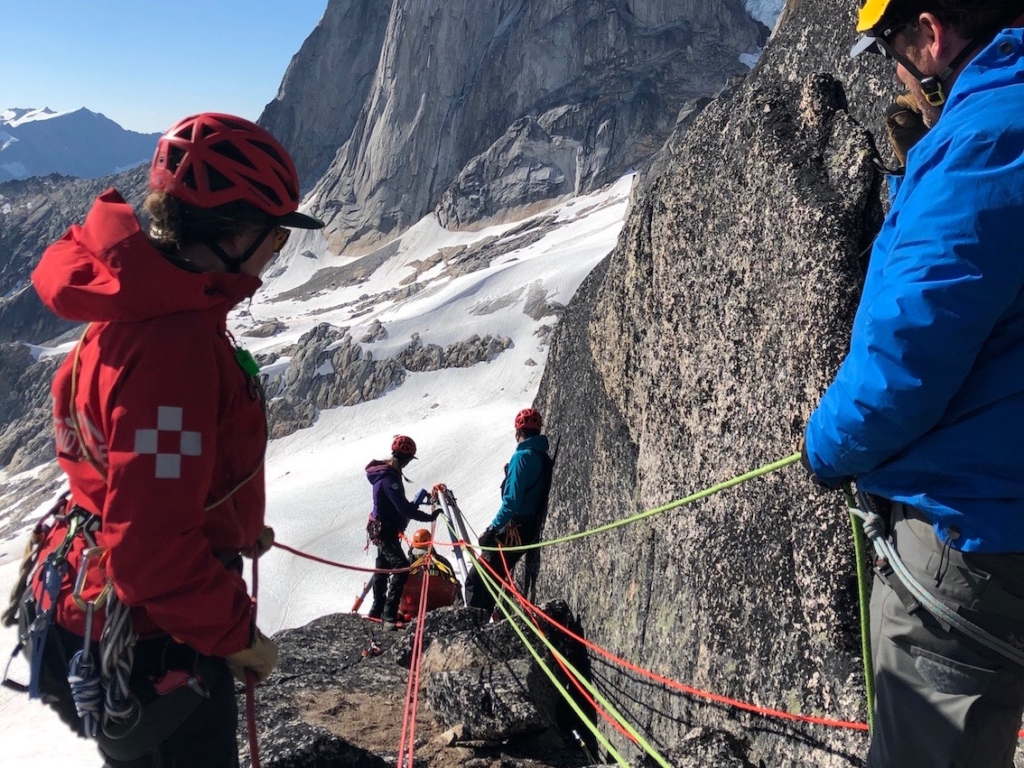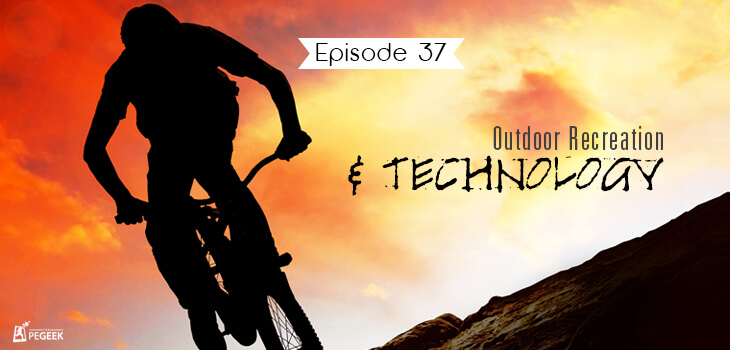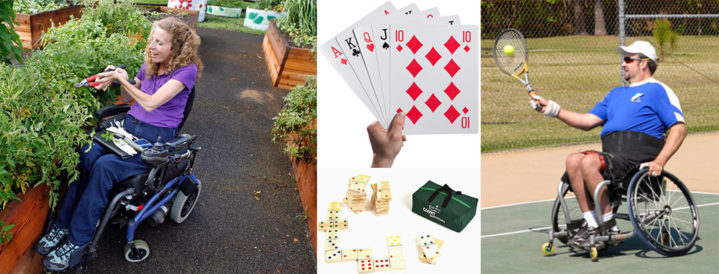Recreation Technology: Shaping Modern Leisure
Recreation technology sets the stage for an enthralling narrative, offering readers a glimpse into a world where leisure activities are constantly evolving. From the early days of simple board games […]

Recreation technology sets the stage for an enthralling narrative, offering readers a glimpse into a world where leisure activities are constantly evolving. From the early days of simple board games to the immersive experiences of virtual reality, technology has played a pivotal role in shaping how we spend our free time. This exploration delves into the history, impact, and future of recreation technology, examining its influence on society, culture, and individual lifestyles.
This journey will explore various types of recreation technology, from gaming consoles and fitness trackers to interactive museums and virtual reality simulations. We will also consider the important role of accessibility in recreation technology, ensuring everyone can participate in enriching leisure activities. Looking ahead, we will discuss emerging trends and ethical considerations surrounding the future of this ever-evolving field.
The Evolution of Recreation Technology

Recreation technology has evolved significantly over time, from simple tools to sophisticated systems that enhance our leisure experiences. This evolution has been driven by technological advancements and changing societal preferences. Early forms of recreation technology were primarily focused on basic needs, such as providing tools for hunting, fishing, and crafting. As technology progressed, recreation technology became more sophisticated, offering new ways to engage in leisure activities and entertainment.
Early Recreation Technologies and Their Impact
Early recreation technologies played a significant role in shaping social interactions and leisure activities.
- Games and Toys: Early civilizations developed games and toys made from natural materials, such as wood, bone, and clay. These objects provided entertainment and facilitated social interaction, fostering creativity and problem-solving skills. For instance, the ancient Egyptians enjoyed board games like Senet, while ancient Greeks played games like knucklebones. These early forms of entertainment laid the foundation for the development of modern games and toys.
- Musical Instruments: The invention of musical instruments, such as flutes, drums, and lyres, transformed recreation by providing a means for musical expression and entertainment. Music played a vital role in religious ceremonies, social gatherings, and storytelling, contributing to the cultural development of societies. Examples include the ancient Egyptian harp, the Greek lyre, and the Chinese zither, all of which influenced the evolution of music and musical instruments over centuries.
- Sports and Games: Ancient civilizations engaged in various sports and games, including wrestling, chariot racing, and ball games. These activities provided physical exercise, entertainment, and opportunities for competition. For instance, the ancient Greeks held the Olympic Games, which involved athletic competitions and cultural events. These early forms of sports and games laid the groundwork for modern athletic competitions and recreational activities.
Technological Advancements and Modern Recreational Activities
Technological advancements have played a crucial role in shaping modern recreational activities.
- The Printing Press: The invention of the printing press in the 15th century revolutionized recreation by making books and other printed materials more accessible. This led to increased literacy and the development of new forms of entertainment, such as reading and playing card games. The widespread availability of printed materials also facilitated the spread of ideas and knowledge, contributing to the growth of leisure activities.
- The Automobile: The invention of the automobile in the late 19th century transformed recreation by providing a means for personal transportation. This enabled people to explore new destinations, participate in outdoor activities, and enjoy road trips. The automobile also contributed to the development of theme parks, amusement parks, and other forms of entertainment that were accessible by car.
- The Television: The introduction of television in the mid-20th century revolutionized home entertainment. Television provided a new medium for storytelling, news, and sports, offering a wide range of entertainment options for viewers. The popularity of television led to the development of new forms of entertainment, such as reality shows, game shows, and streaming services.
- The Internet and Digital Technology: The advent of the internet and digital technology has transformed recreation in unprecedented ways. Online gaming, social media, and streaming services have become ubiquitous, offering a vast array of entertainment options and opportunities for social interaction. The internet has also enabled the development of virtual reality (VR) and augmented reality (AR) technologies, which are transforming gaming, entertainment, and other leisure activities.
Impact of Recreation Technology on Society
Recreation technology has profoundly impacted society, reshaping how we spend our leisure time, interact with others, and even perceive our world. This impact extends across social, economic, and cultural spheres, influencing our lifestyles and shaping our understanding of leisure and recreation.
Social Impact
Recreation technology has significantly influenced social interactions and community building.
- Increased Social Connectivity: Recreation technology platforms, such as social media and online gaming communities, have fostered connections among individuals with shared interests, regardless of geographical location. For instance, online gaming platforms like Fortnite and League of Legends have created virtual communities where players can connect, compete, and collaborate, fostering friendships and social interaction beyond physical boundaries.
- Virtual Communities and Socialization: Online platforms have enabled the formation of virtual communities based on shared hobbies, interests, and passions. These platforms provide spaces for individuals to connect, engage in discussions, and share experiences, fostering a sense of belonging and social interaction. Examples include online forums dedicated to specific sports, fitness communities, or online groups for travel enthusiasts.
- Accessibility and Inclusion: Recreation technology has made recreational activities more accessible to individuals with disabilities, promoting inclusivity and participation. For instance, adaptive gaming controllers and software have enabled individuals with physical limitations to enjoy video games, while virtual reality experiences have provided immersive and engaging experiences for people with visual impairments.
Economic Impact
Recreation technology has created new economic opportunities and industries.
- Growth of Recreation Technology Industry: The development and proliferation of recreation technology have fueled the growth of a significant industry encompassing software development, hardware manufacturing, content creation, and digital marketing. This industry provides employment opportunities and contributes to economic growth.
- E-Sports and Gaming Industry: The rise of e-sports has created a lucrative industry with professional gamers, tournaments, sponsorships, and streaming platforms. This industry has generated significant revenue and attracted investment, highlighting the economic potential of recreation technology.
- Tourism and Travel Industry: Recreation technology has transformed the tourism and travel industry, with platforms like Airbnb and Booking.com connecting travelers with accommodations and experiences worldwide. This technology has enabled easier access to travel information, booking services, and personalized recommendations, contributing to economic growth in the tourism sector.
Cultural Impact
Recreation technology has influenced cultural trends and shaped our understanding of leisure.
- Shifting Leisure Preferences: Recreation technology has significantly altered how people spend their leisure time, with digital entertainment, online gaming, and social media becoming increasingly popular. This shift has influenced cultural trends and impacted traditional forms of recreation.
- New Forms of Entertainment and Recreation: Recreation technology has introduced new forms of entertainment and recreation, such as virtual reality experiences, augmented reality games, and interactive simulations. These innovations have expanded the range of leisure activities available and shaped cultural preferences.
- Global Cultural Exchange: Recreation technology has facilitated global cultural exchange, allowing individuals to access and engage with diverse cultures through online platforms. This exchange has broadened perspectives, fostered understanding, and influenced cultural trends.
Influence on Leisure Time and Lifestyle Choices
Recreation technology has significantly impacted how individuals allocate their leisure time and make lifestyle choices.
- Increased Screen Time: The prevalence of recreation technology has led to increased screen time, potentially impacting physical activity levels, sleep patterns, and social interaction.
- Personalized Experiences: Recreation technology has enabled personalized experiences, tailoring entertainment, fitness routines, and travel plans to individual preferences. This personalization has contributed to a more customized approach to leisure and lifestyle choices.
- Accessibility and Convenience: Recreation technology has made leisure activities more accessible and convenient, with online platforms offering a wide range of options from home. This convenience has influenced lifestyle choices, enabling individuals to pursue recreational activities without significant time or travel commitments.
Recreation Technology and Accessibility

Recreation technology plays a pivotal role in promoting inclusivity and accessibility for individuals with disabilities. It empowers people with diverse abilities to participate in recreational activities, fostering a more equitable and enjoyable experience for everyone.
Assistive Technologies for Enhanced Recreation
Assistive technologies are specifically designed to enhance recreational experiences for individuals with disabilities. These technologies bridge gaps and create more equitable opportunities for participation.
- Adaptive Equipment: This category encompasses modified equipment, such as wheelchairs designed for specific activities like basketball or tennis, hand-cycles for cycling, and specialized fishing rods for individuals with limited mobility. Adaptive equipment allows individuals to engage in activities that might otherwise be inaccessible.
- Assistive Software and Apps: These technologies offer a wide range of features that can enhance accessibility. Examples include screen readers for visually impaired individuals, voice control software for individuals with motor impairments, and apps that provide real-time translation for individuals with hearing impairments.
- Sensory Technologies: These technologies address sensory needs and can enhance recreational experiences for individuals with sensory disabilities. Examples include noise-canceling headphones for individuals with auditory sensitivities, vibrating devices for individuals with visual impairments, and interactive light shows for individuals with cognitive disabilities.
The Future of Recreation Technology
The field of recreation technology is constantly evolving, driven by advancements in virtual reality (VR), augmented reality (AR), artificial intelligence (AI), and other emerging technologies. These innovations are poised to revolutionize how we experience recreation, offering new opportunities for engagement, accessibility, and personalization.
Emerging Trends and Advancements
The future of recreation technology is shaped by several emerging trends and advancements. These include:
- Advancements in VR and AR: VR and AR technologies are becoming increasingly immersive and realistic, blurring the lines between the digital and physical worlds. For example, VR simulations can provide realistic experiences of extreme sports, such as skydiving or rock climbing, without the associated risks. AR overlays can enhance real-world environments, providing interactive experiences for outdoor activities, such as nature walks or city tours.
- AI-powered personalization: AI algorithms can analyze user data and preferences to create personalized recreation experiences. This includes recommending activities, destinations, and equipment based on individual interests and abilities. For example, AI-powered fitness apps can track progress, provide personalized workout plans, and offer real-time feedback.
- Integration of wearable technology: Wearable devices, such as smartwatches and fitness trackers, are becoming increasingly integrated into recreation activities. These devices can track performance, provide real-time data, and enhance safety. For example, smartwatches can monitor heart rate and location during outdoor activities, while fitness trackers can analyze sleep patterns and provide insights into overall well-being.
- The rise of ecotourism: As environmental concerns grow, ecotourism is becoming increasingly popular. Recreation technology can play a crucial role in promoting sustainable practices, such as providing real-time information about local ecosystems and encouraging responsible behavior. For example, AR apps can overlay information about endangered species or highlight areas of ecological significance.
Potential Future Applications of VR, AR, and AI in Recreation, Recreation technology
VR, AR, and AI have the potential to transform the recreation landscape in numerous ways. Some potential future applications include:
- VR-based training and simulation: VR can provide realistic simulations for various recreational activities, such as skiing, surfing, or sailing. This allows individuals to practice skills and improve their performance in a safe and controlled environment. For example, VR simulations can help novice skiers learn fundamental techniques or allow experienced surfers to practice maneuvers in challenging conditions.
- AR-enhanced outdoor experiences: AR can enhance outdoor recreation by providing interactive information and experiences. For example, AR apps can overlay historical information about landmarks, provide real-time weather updates, or identify nearby trails and points of interest.
- AI-powered personalized fitness and wellness programs: AI algorithms can analyze user data, such as fitness levels, goals, and preferences, to create personalized fitness and wellness programs. This can include recommending exercises, providing nutritional guidance, and offering motivational support.
- AI-driven recreation planning and recommendations: AI can analyze user data and preferences to recommend personalized recreation activities, destinations, and travel itineraries. This can help individuals discover new experiences and maximize their enjoyment of leisure time.
Hypothetical Recreation Technology: Addressing Social Isolation
A hypothetical recreation technology that addresses the growing issue of social isolation could be a VR platform designed to facilitate virtual social gatherings and shared experiences. This platform would allow users to create virtual spaces for socializing, playing games, watching movies, or participating in interactive activities.
The platform could incorporate AI features to facilitate social interaction, such as suggesting conversation topics, recommending activities, and matching users with similar interests. It could also integrate with other recreation technologies, such as fitness trackers, to enable users to participate in virtual workouts or engage in collaborative activities.
This technology would address social isolation by providing a virtual space for individuals to connect with others, share experiences, and build relationships, even when physically separated.
Ethical Considerations in Recreation Technology
Recreation technology, while offering numerous benefits, raises ethical concerns that demand careful consideration. As these technologies become increasingly integrated into our lives, it’s crucial to understand their potential impact on privacy, security, and social interactions.
Privacy and Data Collection
Recreation technology often involves the collection of personal data, such as location, activity levels, and preferences. This data collection raises privacy concerns, as it can be used for purposes beyond the intended use of the technology. For example, fitness trackers collect data about users’ physical activity, which could be shared with third parties without their knowledge or consent.
Security Risks
Recreation technology is susceptible to security breaches, which could lead to the theft or misuse of personal data. Hackers could potentially gain access to fitness trackers, smartwatches, or other devices, compromising users’ privacy and security.
Social Impact
Recreation technology can have a significant impact on social interactions. For example, virtual reality games can create immersive experiences that may limit real-world interactions. Additionally, the use of social media platforms for recreation can lead to comparison and competition, potentially affecting mental health and well-being.
Ethical Guidelines for Recreation Technology
To address these ethical concerns, it is crucial to establish guidelines for the development and use of recreation technology.
- Data Privacy and Security: Developers should prioritize data privacy and security by implementing robust security measures and obtaining informed consent from users before collecting and using their data.
- Transparency and Accountability: Companies should be transparent about their data collection practices and provide users with clear information about how their data is used.
- Social Impact: Developers should consider the potential social impact of their technologies and design them in a way that promotes healthy social interactions and well-being.
- Responsible Use: Users should be educated about the potential risks and ethical considerations associated with recreation technology and encouraged to use it responsibly.
Closing Summary

As recreation technology continues to advance, it promises to revolutionize the way we experience leisure. From fostering social connections and promoting inclusivity to pushing the boundaries of imagination, this dynamic field holds immense potential to enhance our lives and create new opportunities for enjoyment and engagement. By embracing responsible innovation and addressing ethical concerns, we can harness the power of recreation technology to create a more enriching and fulfilling world for all.
Recreation technology has evolved dramatically, from simple board games to immersive virtual reality experiences. The advancements in pipeline technology have also played a role in this evolution, allowing for the efficient distribution of content and data that fuels these immersive experiences.
Whether it’s streaming a live sporting event or downloading the latest video game, recreation technology relies on robust infrastructure to deliver its magic.








